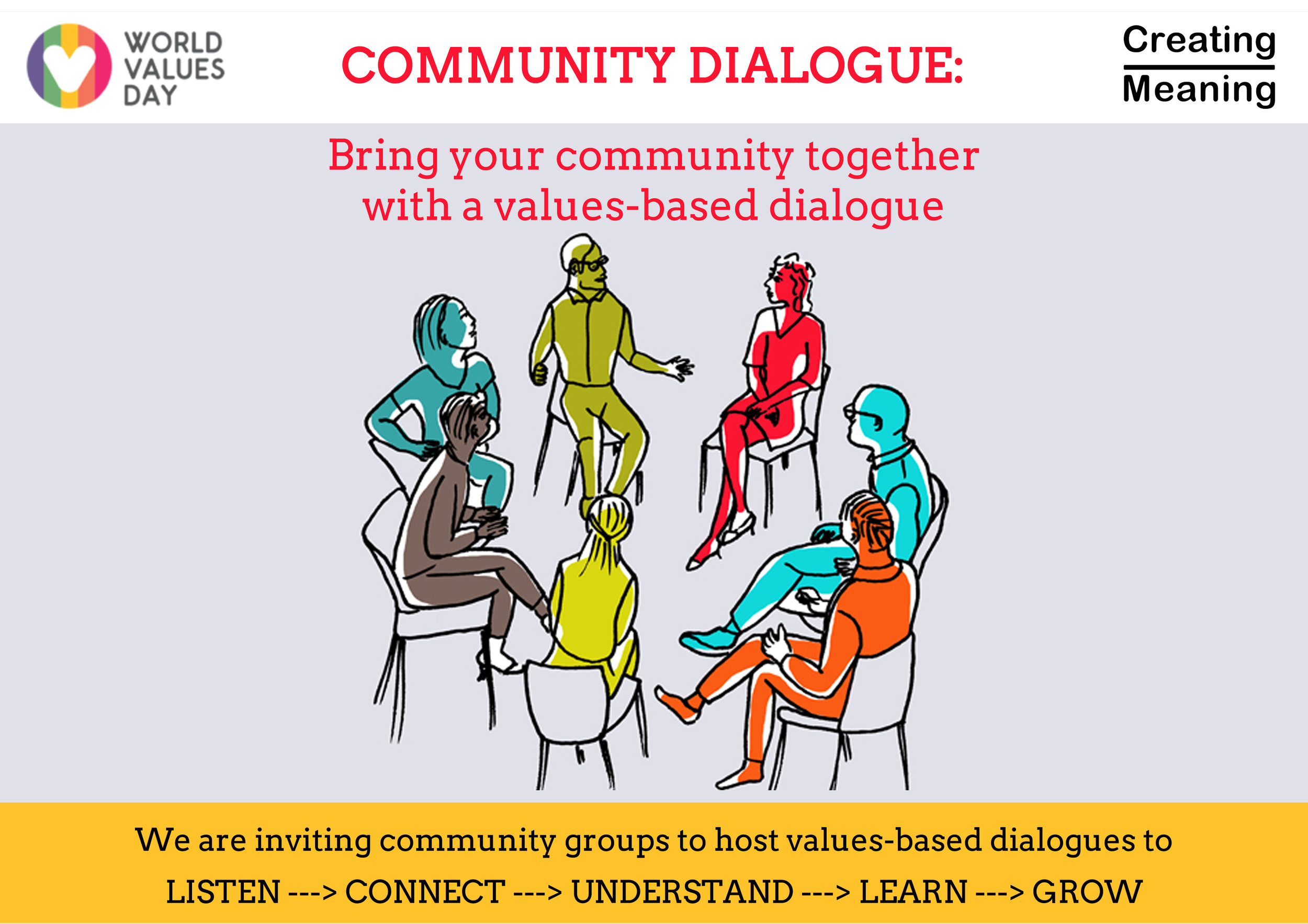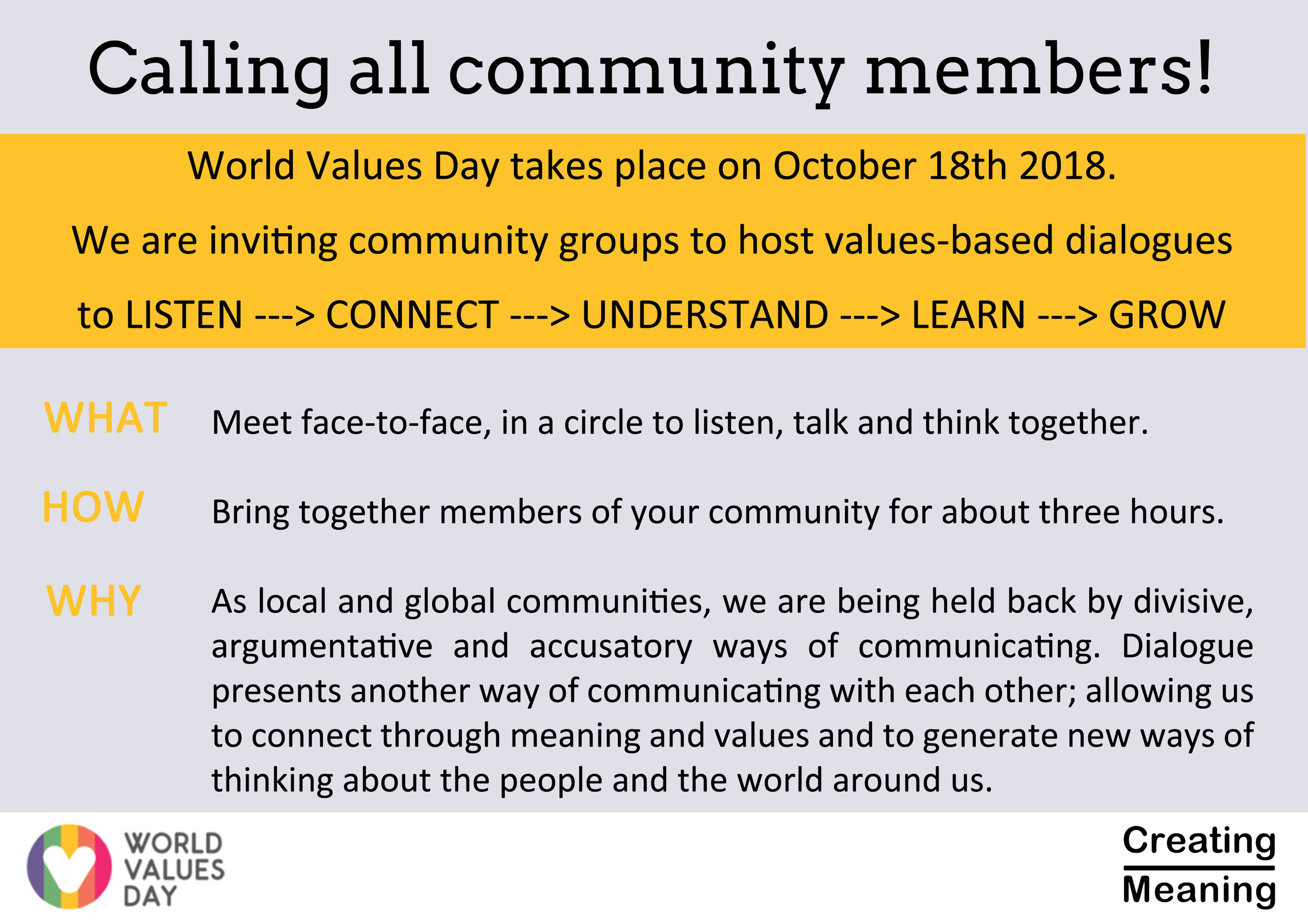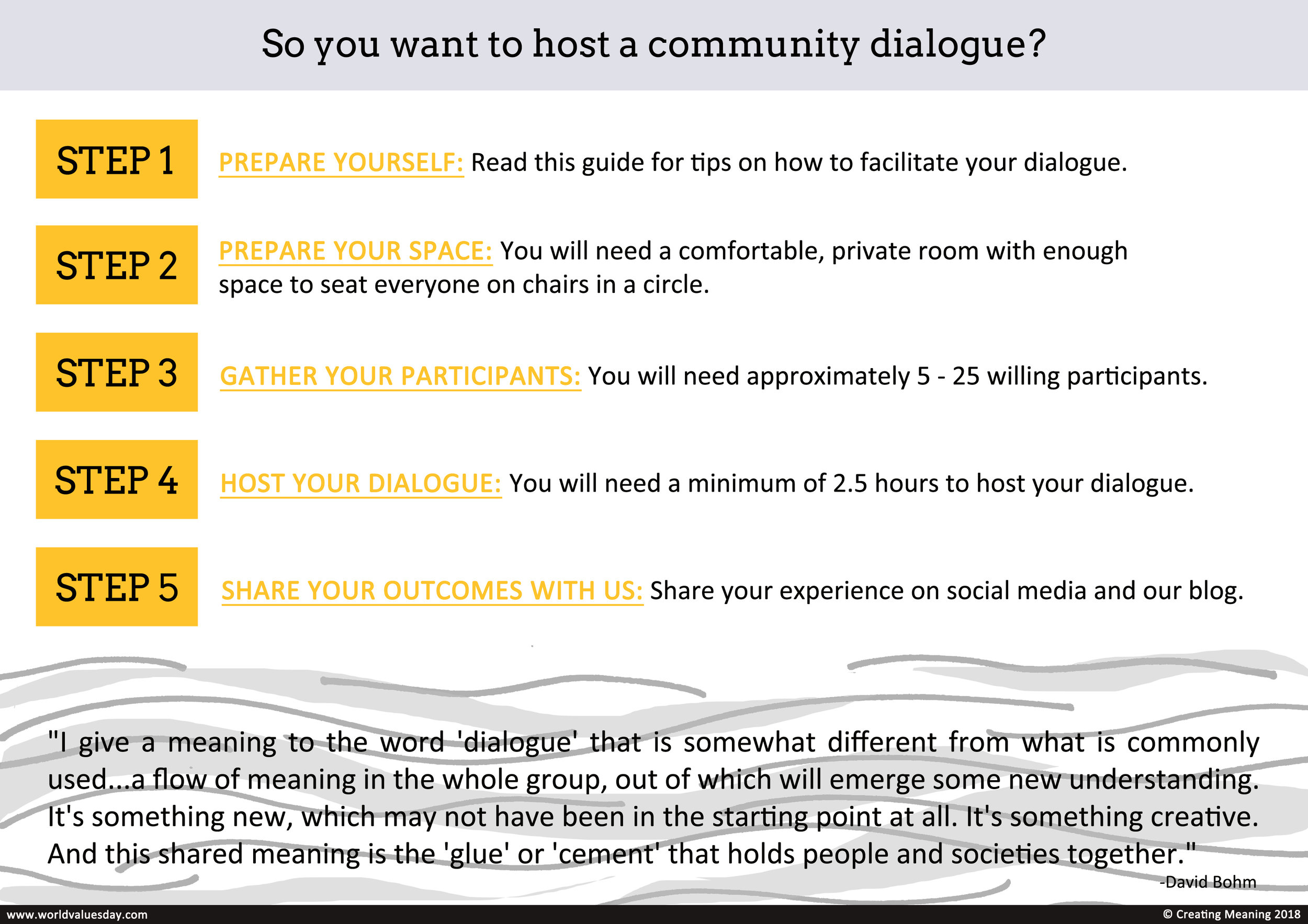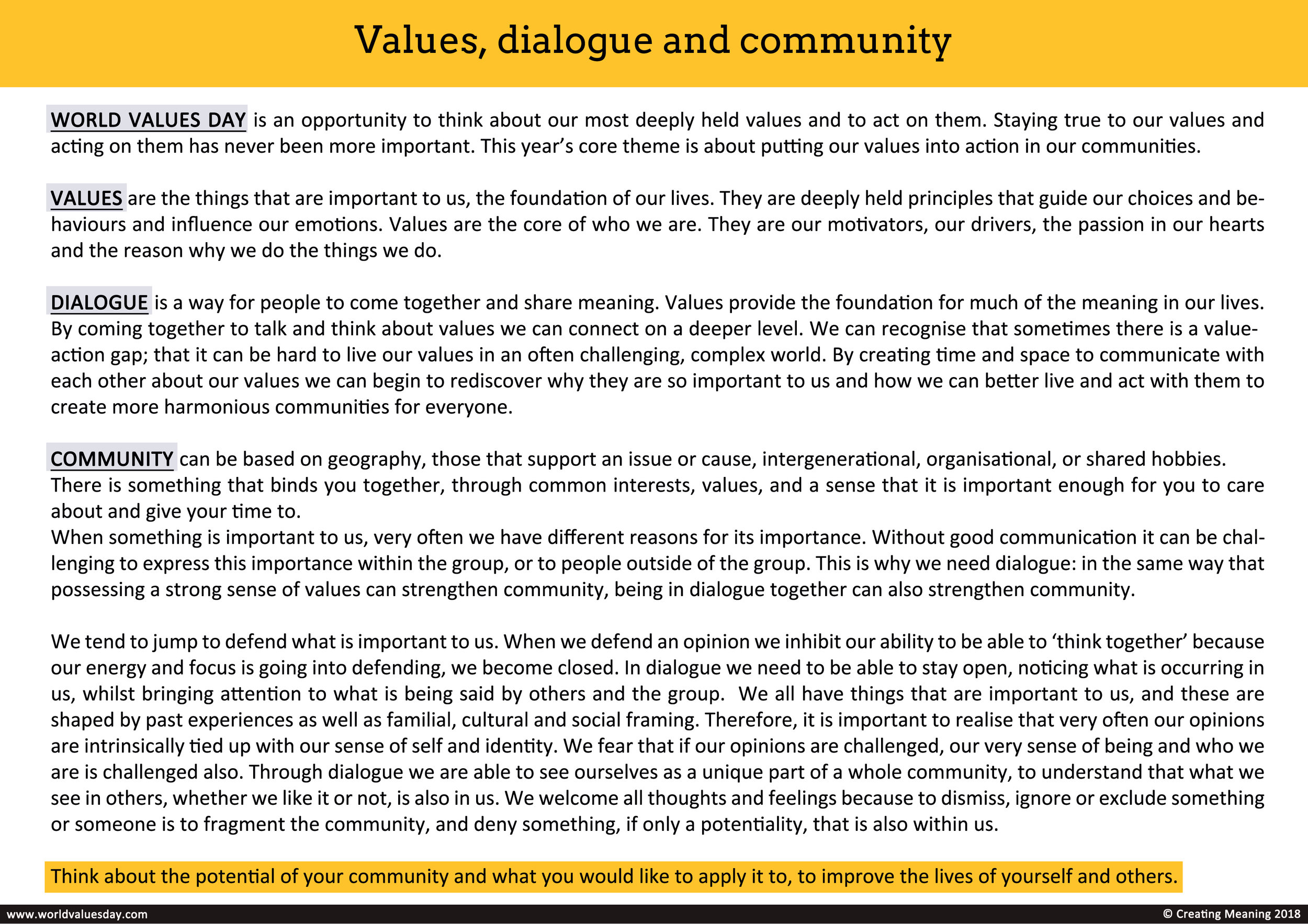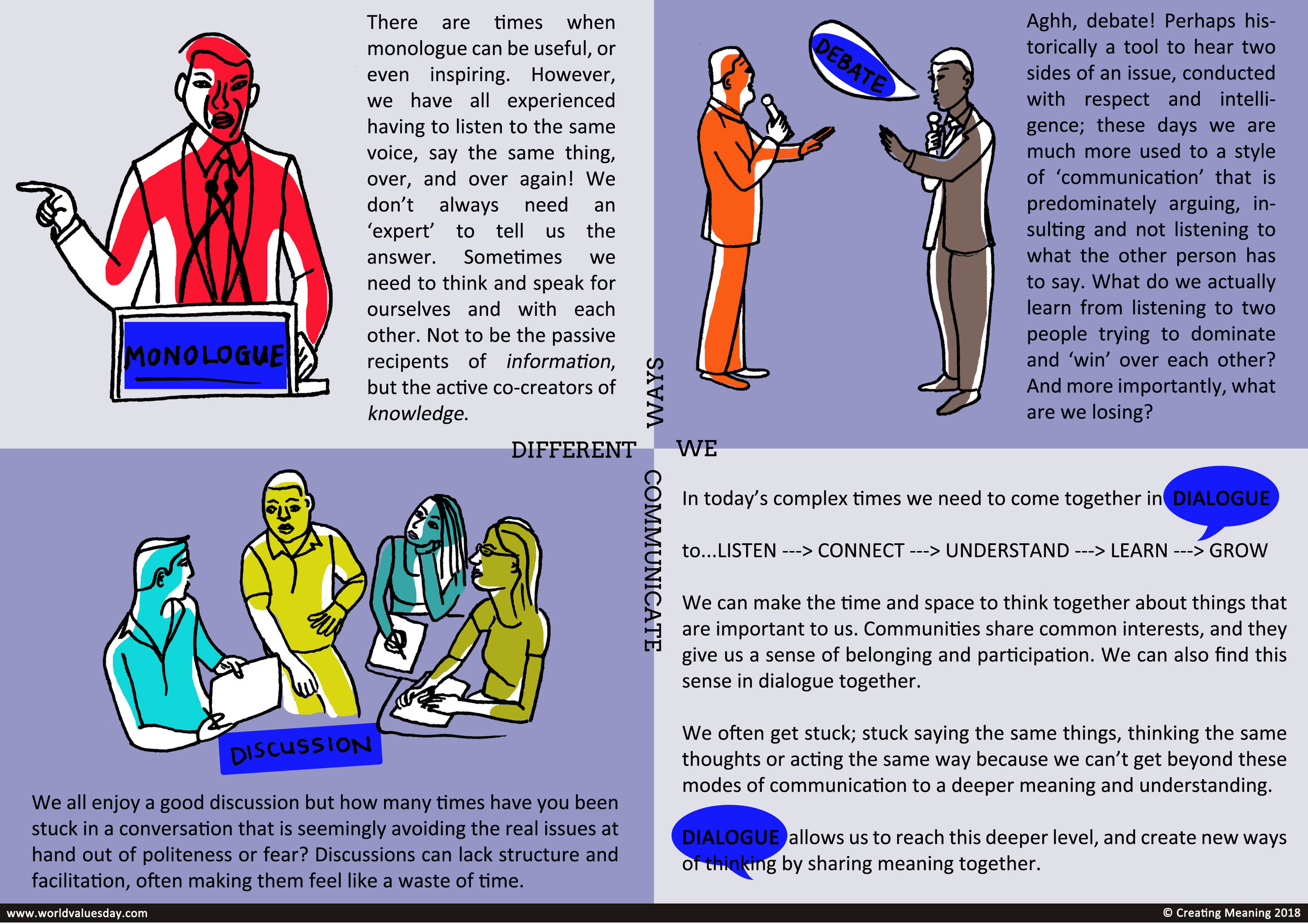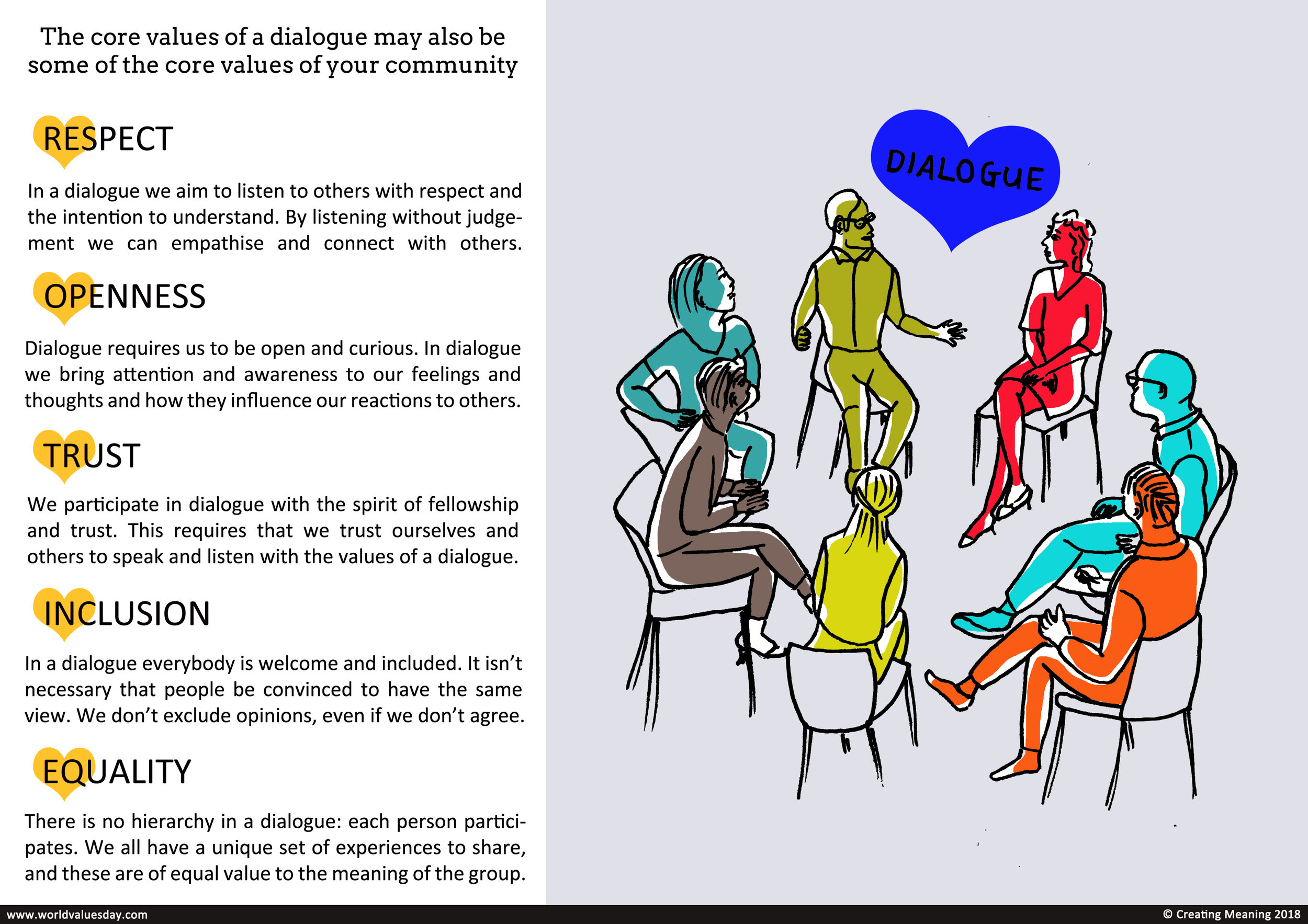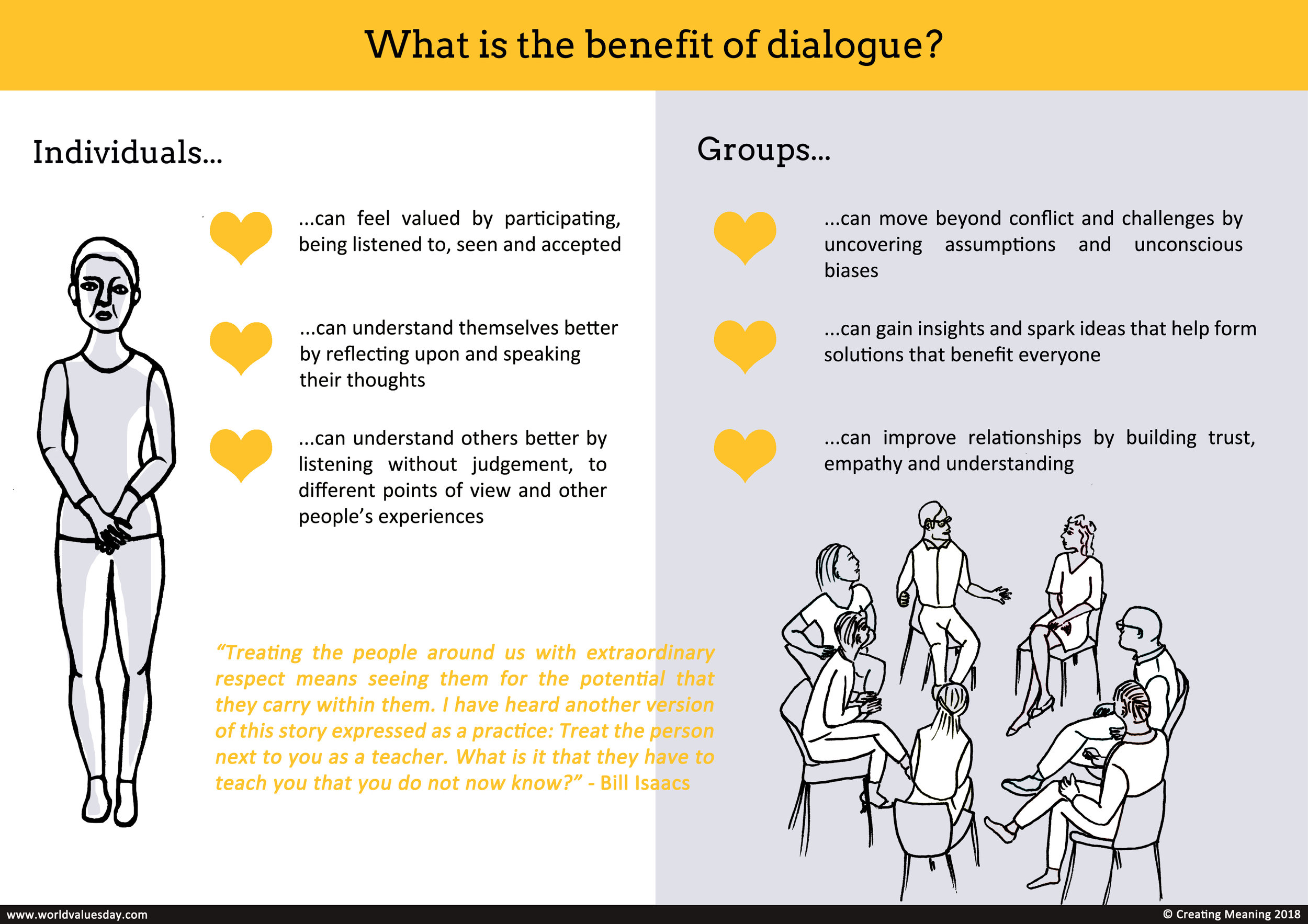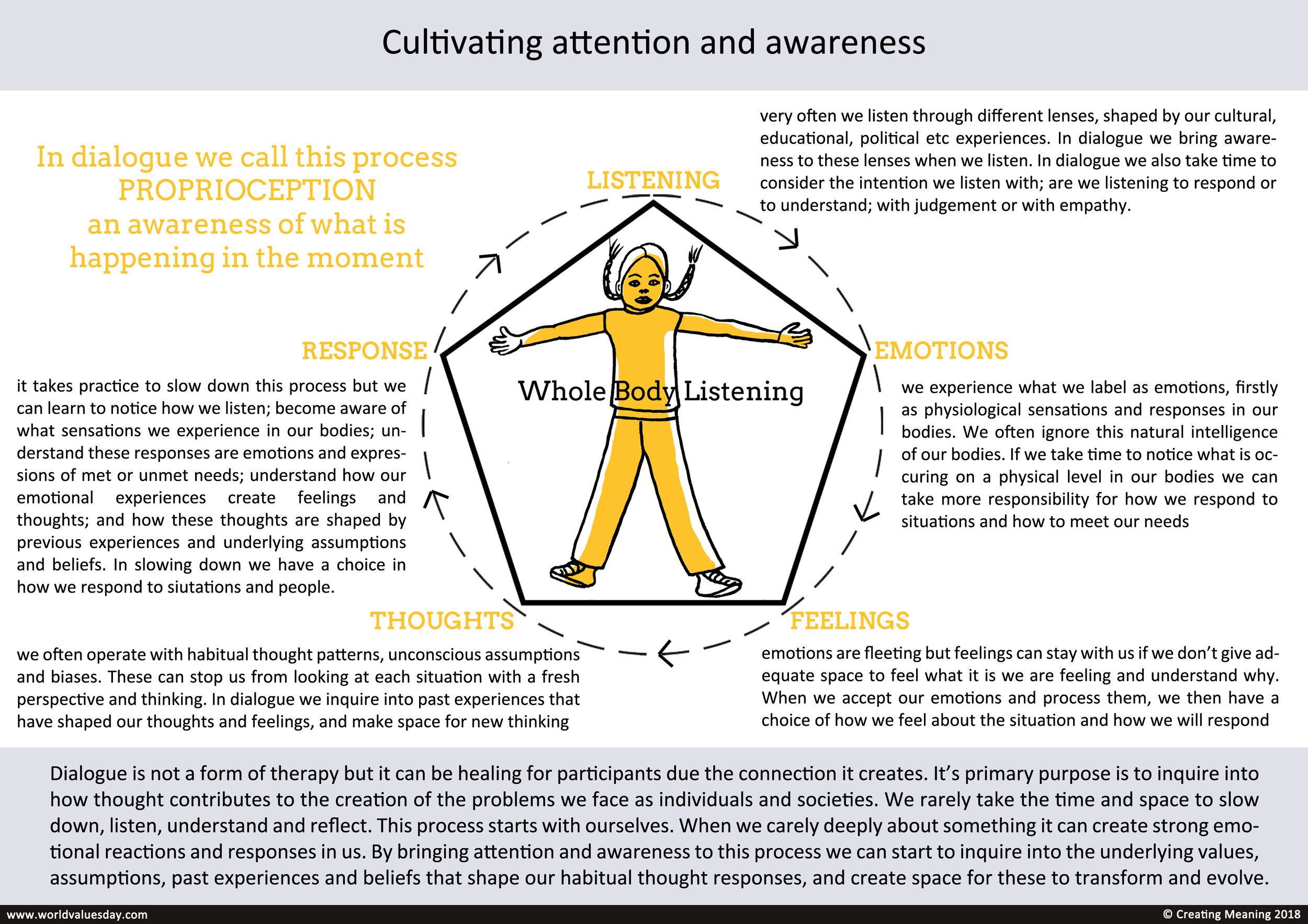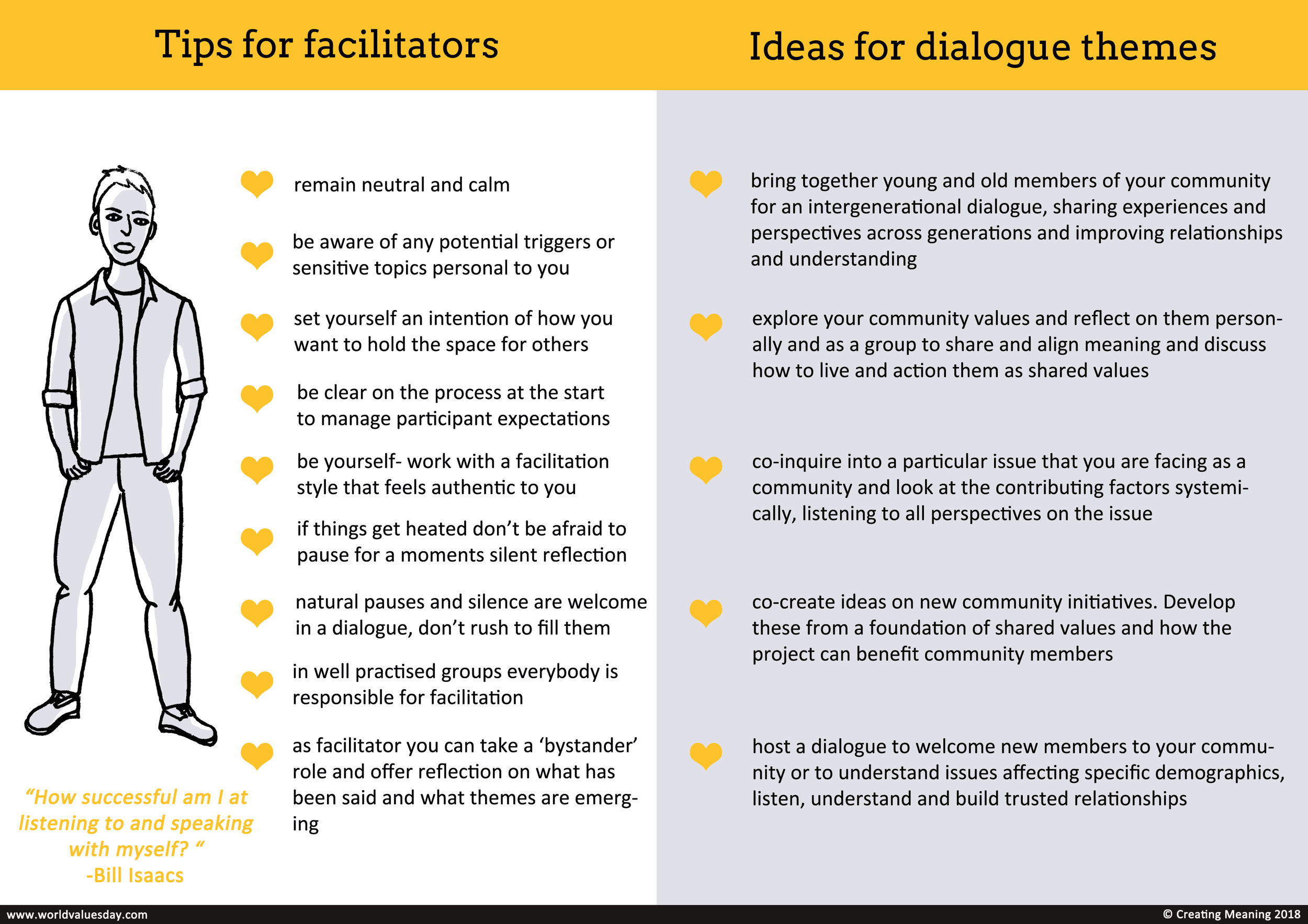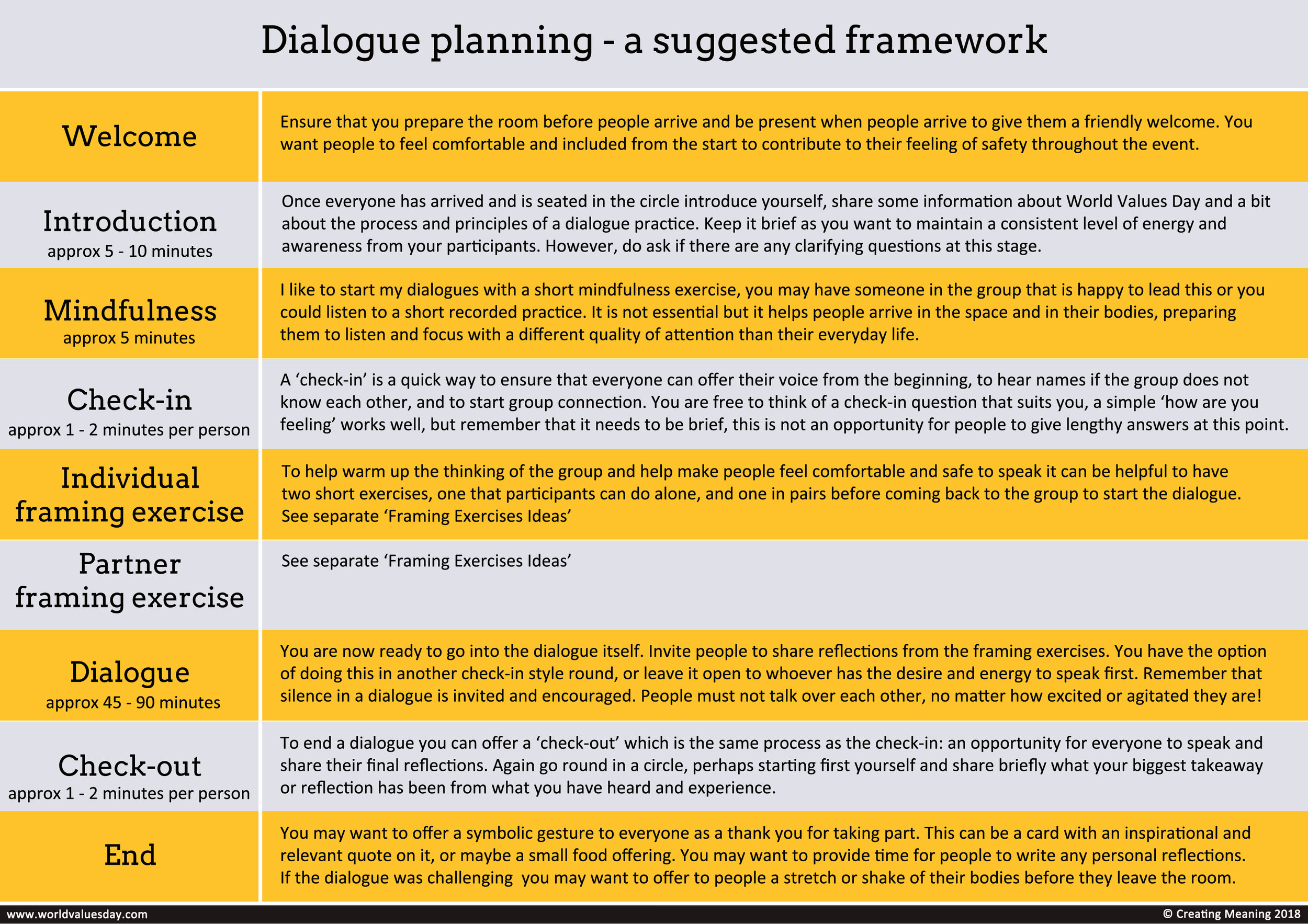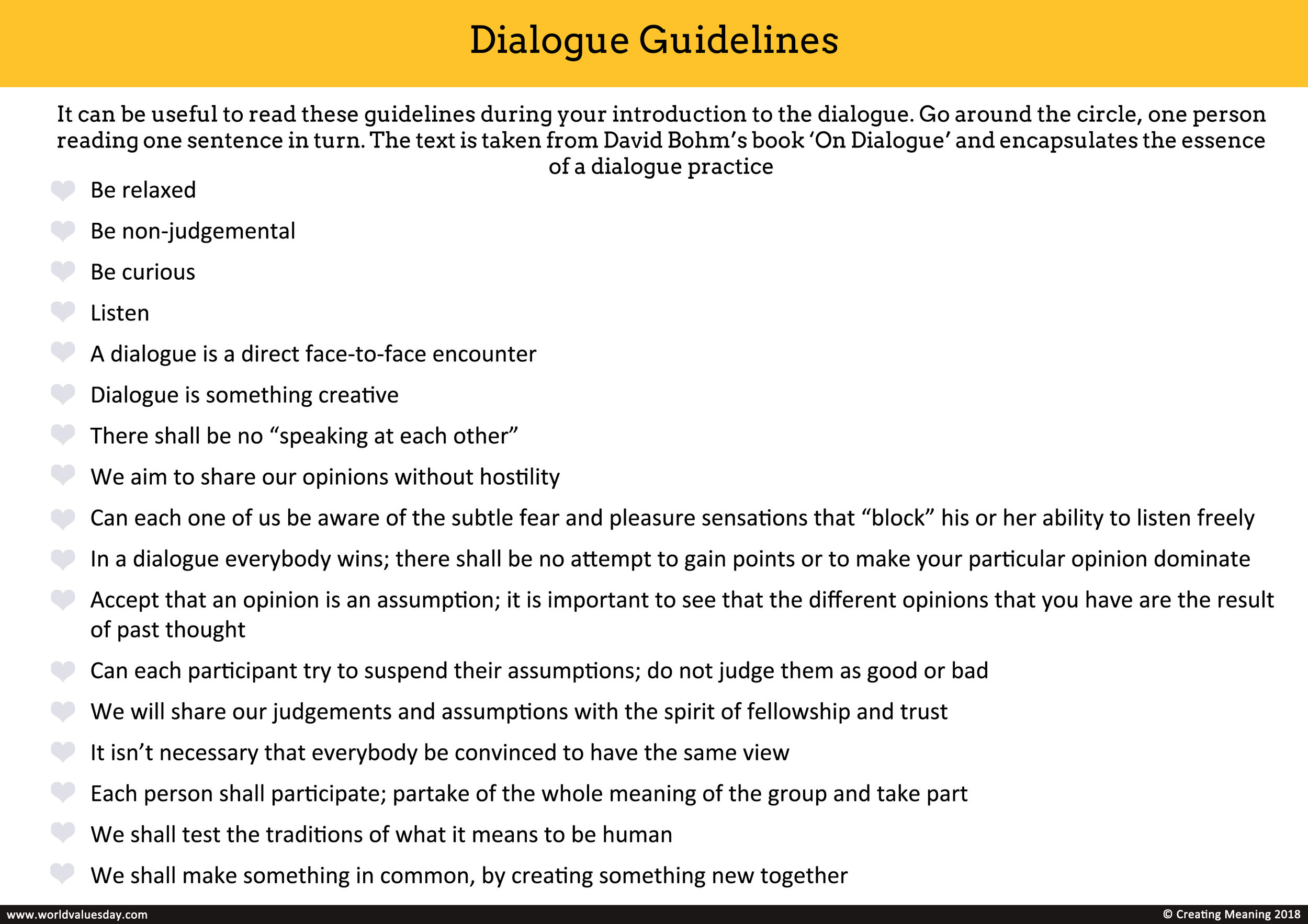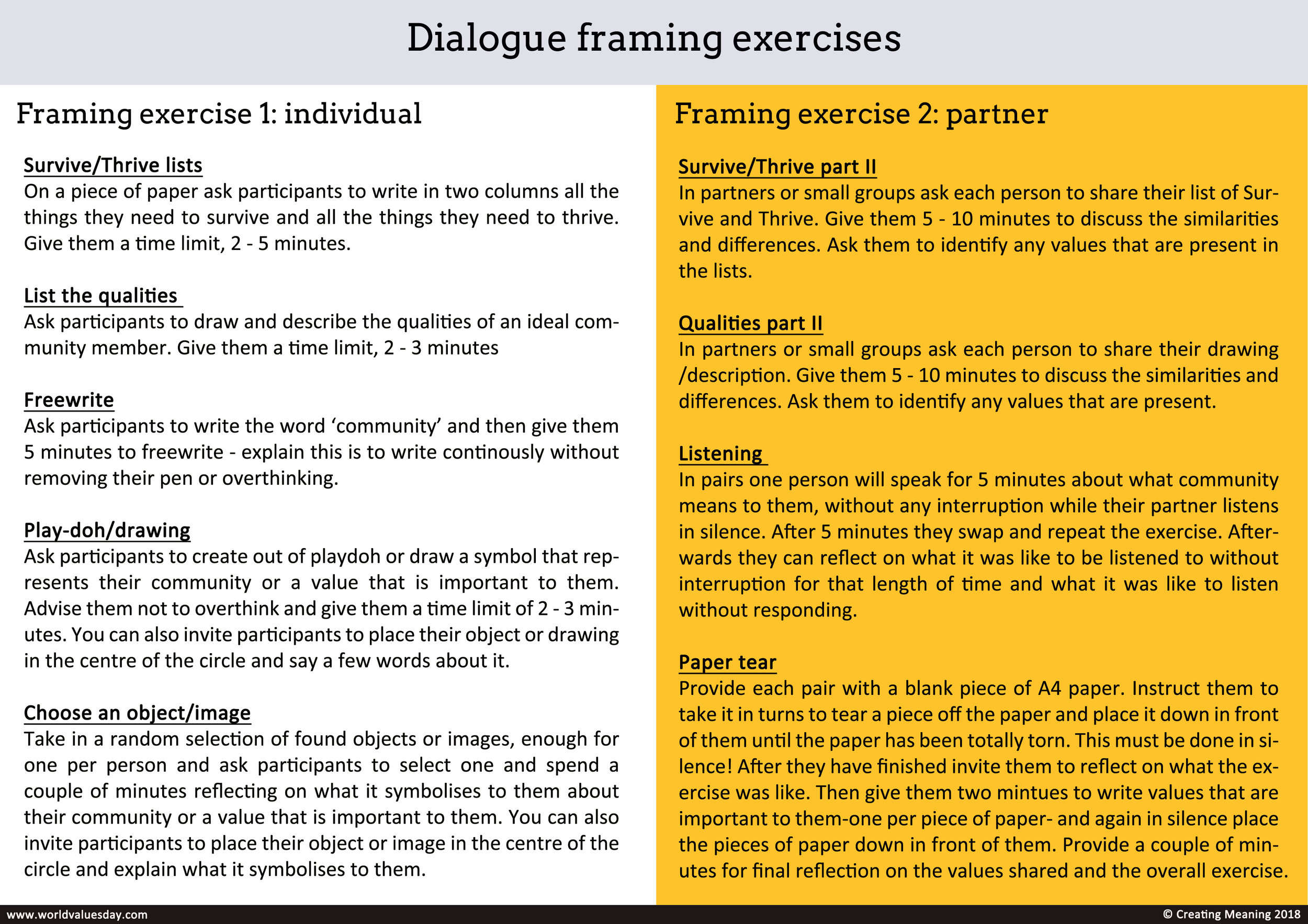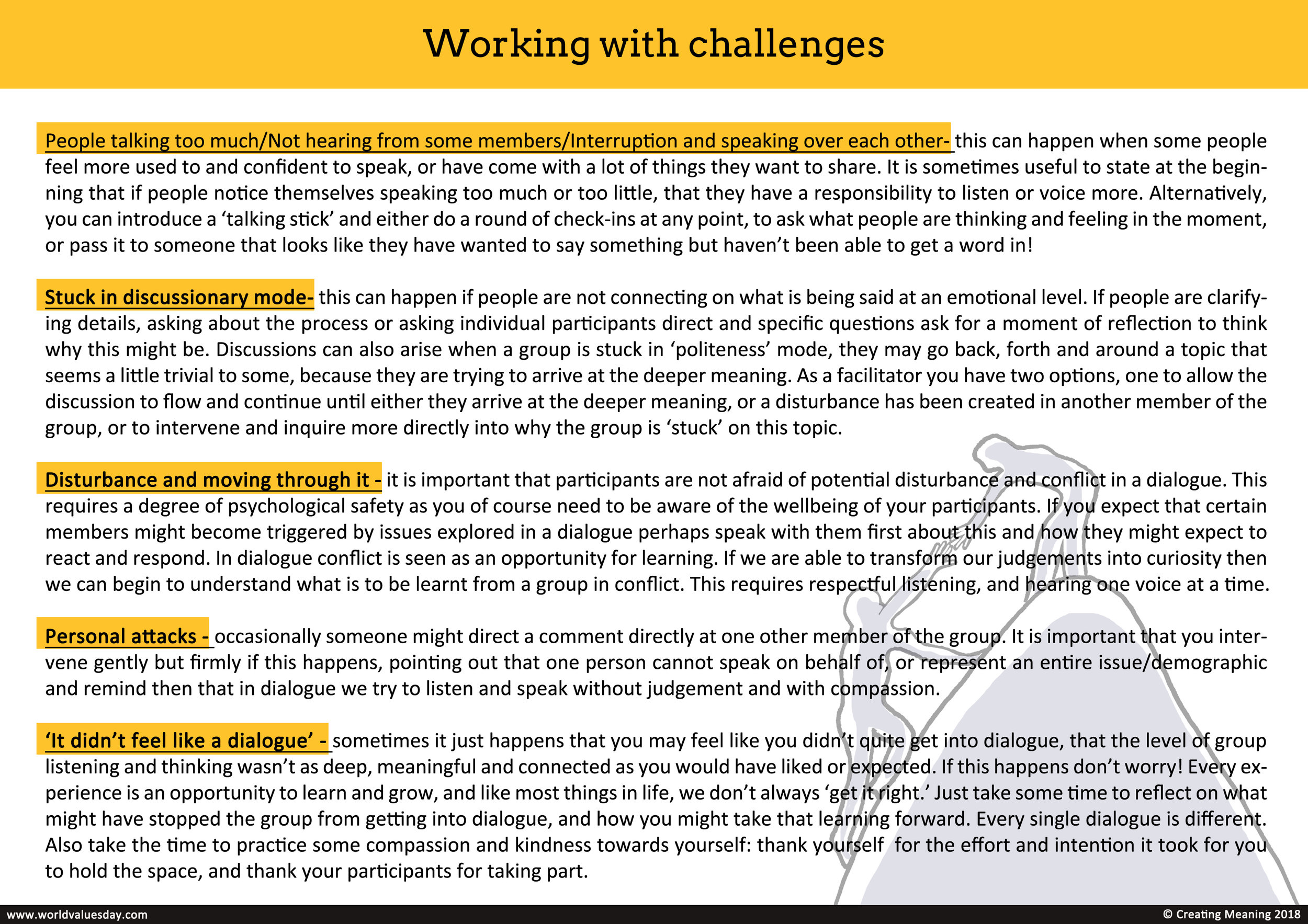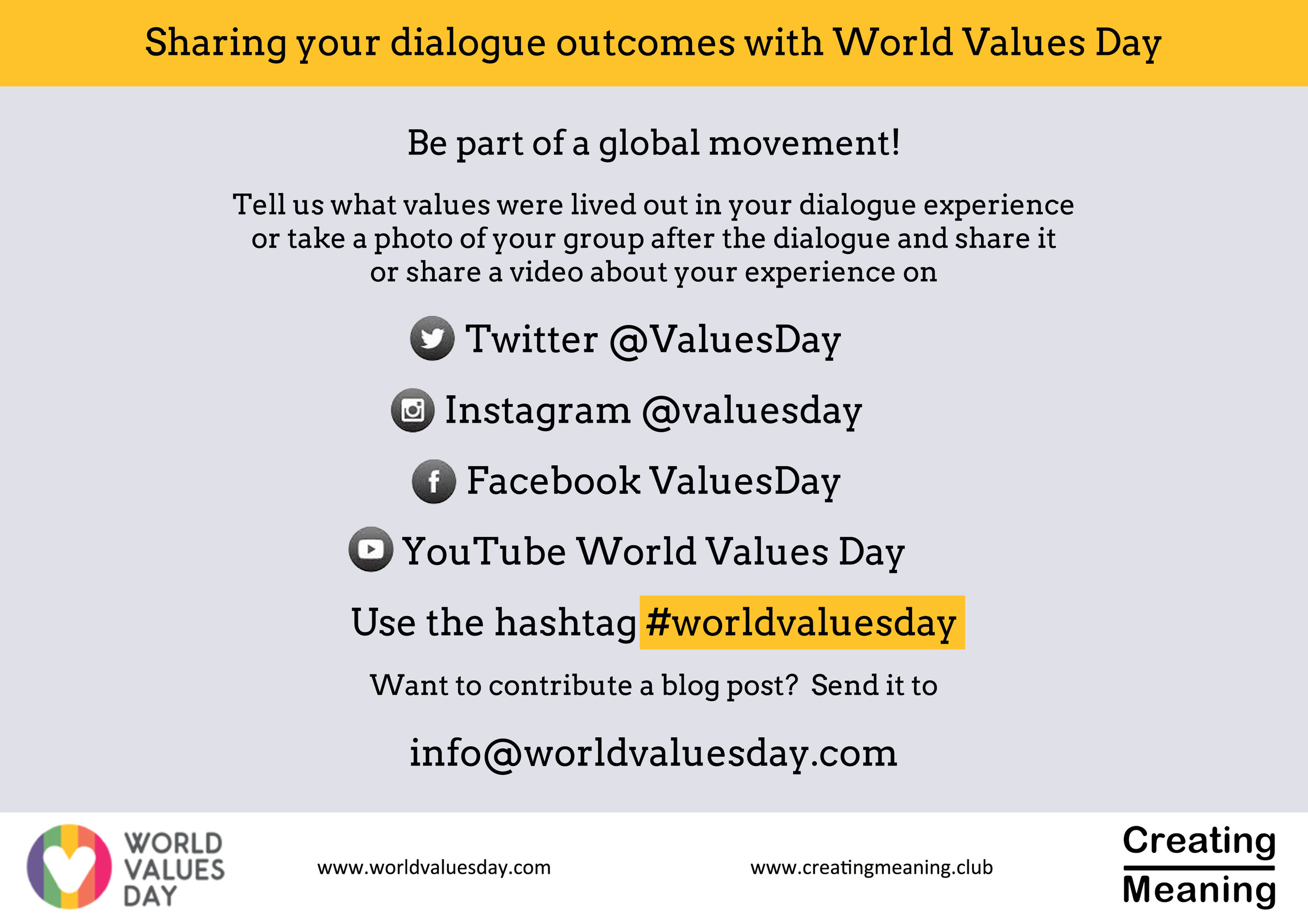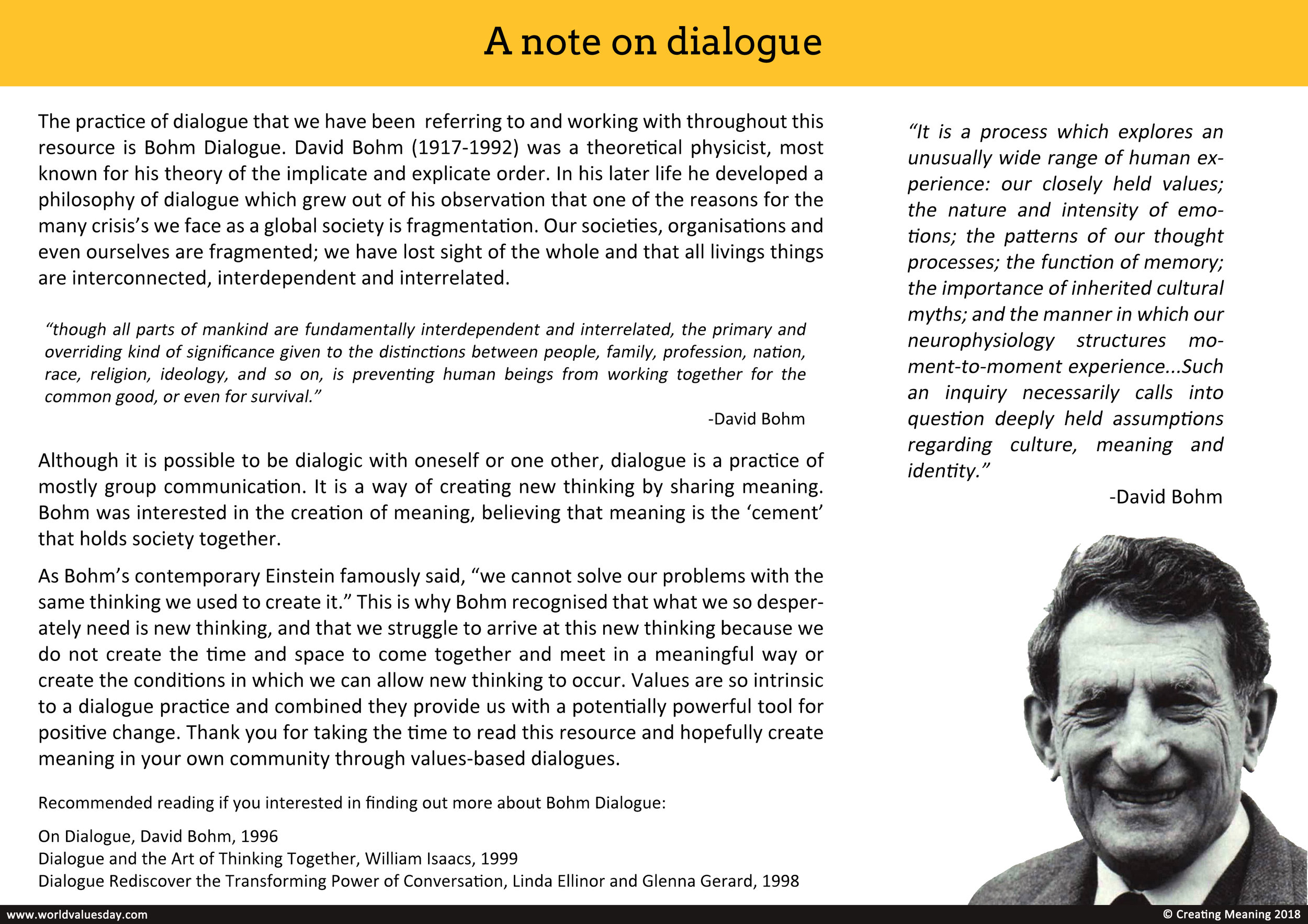Last night was the last in this year’s dialogue series with the UK Values Alliance. It has been an incredibly interesting and thought-provoking series, and thank you to everyone who has taken part.
The final dialogue was an opportunity to reflect on the upcoming World Values Day and the dialogue took us to many different points of exploration.
We began the dialogue with two short framing exercises, the first to look at the image of the earth from space and spend two minutes writing all the words that came to mind. The second was to draw or describe something that we see on a frequent basis in our everyday lives that is of value to us.
“Values conversations are so valuable because they are what is truly going to connect us with what’s meaningful.”
Both these exercises produced interesting and varied responses from people, which prompted one participant to begin the dialogue with a sharing of feeling flabbergasted that two people could have such different responses to the same exercise. This lead us to explore what it actually means to feel flabbergasted, which interestingly, according to one of my favourite online sources, etymonline.com, is a word of uncertain origin. Whilst I wasn’t aware of this during the dialogue, it seems fitting, given that looking at the earth from space reminds us of amongst other things, the uncertainty that comes with living on a rock in an infinite universe!
The dialogue continued and touched on how we label, mainly focusing on male/female, feminine/masculine, and the new pronouns that the younger generation are using for people who choose to identify as non-binary which led to further questions of why do we need labels; why do Latin language prescribe gender to inanimate objects; why does ‘Mother Earth’ have to be female; why do we humanise the Earth. As with any dialogue it takes time to process the questions that arise and seem important to us. The question of why do we humanise things that aren’t ‘human’ to me seems to stem from our interrelationship with everyone and everything around us. When I look at a photo of the earth I feel a sense of connection, and therefore, I personally understand my need to relate to all that is within the world in a way that makes sense to me as a human, and also beyond being human. In the same way as I feel connected, I also feel that the Earth is our Mother. The strong feelings that arise in dialogue when listening to others can provide us with deeper understanding about our beliefs and the values that contribute to and arise from them.
The question of whether humans are ‘fundamentally flawed’ or not was raised and created some fragmentation in the dialogue. This again showed the power of perception and language to shape our actions and values. How do we perceive humanity, do we believe humans are born fundamentally good -as in some indigenous beliefs -born into original beauty, or are we created flawed? Do we acknowledge that very often the words we use are loaded, that they can create discomfort in others by their perceived or experienced meaning. This part of the dialogue again allowed us to explore the relationship between values and beliefs.
“Values are energetic concepts and when we label them they collapse into something much smaller than what they are, and that’s the limitation of language.”
We talked about the need for inter-generational dialogue, recognising a frequent tension between the generations. Very often the older generation is seen to be comfortable and secure at the expense of the planet and resources: why would they want to compromise or change their comfortable lifestyles for the sake of the future of the environment or younger generations? We noted the obsession in the UK to own a home and asked why this is when in other countries renting is more common. Considering the property and rental market in the UK led us onto greed and fairness. We asked why Britain is perceived and experienced to be a fair country and where did that notion come from or begin, because we historically have not had a fair society in the past. Within this was also questions around ‘mistakes’; what is the difference between a mistake and unintended consequences; do we need to own our mistakes in order to share the learning from them; are we making assumptions about what people perceive to be a mistake; is part of our very nature to make mistakes throughout each generation in history.
As with every dialogue we arrived at more questions and it is for each individual participant to choose the question that needs exploring further for themselves, in a way that will create meaning. This felt like perhaps the most challenging of the four dialogues, separation and fragmentation were both topics of discussion and felt at points throughout the dialogue. Could it be that by looking at a image of the world we feel there is more at stake? Our values help to give us meaning in an unknowable and uncertain world, but we need to do more than name our values, we need to share the meaning of our values to create a space where language can meet experience, and shape collective action, and it seems a powerful way to do that is to meet in dialogue.







